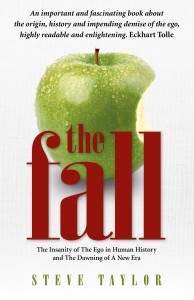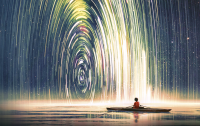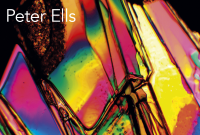
UNDERLYING UNHAPPINESS
by Steve Taylor
Some of us think we can make ourselves happy by becoming rich and successful, by treating ourselves to endless pleasures and amusements, by finding an ideal partner, an ideal job, an ideal house, etc. But as is shown by the large number of studies of pools and lottery winners, of national levels of happiness over different decades, and levels of happiness in different countries,39 none of these things really do make us happy. They can’t satisfy us because they always leave our psychological discord completely untouched. No matter how rich or successful we become, it’s always there inside us, ready to confront us the moment our attention is no longer occupied.
It’s not surprising that so many of us feel that life is a kind of senseless riddle, and secretly suspect that the universe might be playing tricks on us. We look up at the stars, realise how vast and empty the universe is and how insignificant our lives are. We ask ourselves, “What’s it all about?” but don’t have any answers. Mostly we try not to ask ourselves these questions – so much so that there’s a taboo against this kind of “serious” thinking. Sometimes when we hear about people who have nervous breakdowns or commit suicide we say that they were “too intelligent for their own good” or that they “thought too much.” But in our heart of hearts most of us would probably agree with the existentialist philosophers that life is absurd and more or less pointless. As Albert Camus wrote, “The absurd is the essential concept, and the first truth.”40 In fact, this is the kind of philosophy which is at the core of the materialistic and hedonistic values of our culture: nothing really means anything and we’re going to die at some point anyway so we’ve just got to enjoy ourselves as much as we can while we’re here.
But even though we might not be aware of it, the desire to escape psychological discord is one of our deepest drives. To a large extent our lives are propelled by the effort to find the happiness which we’re not born with, to overcome our psychological discord and attain a state of well-being and completeness – or at least to escape from our suffering into a neutral state.
An important and fascinating book about the origin, history and impending demise of the ego - humanitys collective dysfunction. The Fall is highly readable and enlightening, as the authors acute mind is at all times imbued with the higher faculty of spiritual awareness. Eckhart Tolle "The Fall" is one of the most notable works of the first years of our century, and I am convinced it will be one of the most important books of the whole century.International Journal of Transpersonal Studies
The Fall - Human achievement versus war, patriarchy and social inequality.
An important and fascinating book about the origin, history and impending demise of the ego - humanitys collective dysfunction. The Fall is highly readable and enlightening, as the authors acute mind is at all times imbued with the higher faculty of spiritual awareness.Eckhart Tolle
Buy Now Paperback: AMAZON US | AMAZON UK | HIVE | INDIEBOUND
Buy Now eBook: AMAZON US | AMAZON UK | HIVE | INDIEBOUND
Steve Taylor PhD is a senior lecturer in psychology at Leeds Metropolitan University. He is the author of several best-selling books on spirituality and psychology, including The Fall, Waking From Sleep, Out of the Darkness,Back to Sanity, Not I, Not Other Than I and The Calm Centre. He is also a poet, and the author of The Meaning: Poetic and Spiritual Reflections. Steve was recently included (at no. 38) in Mind, Body, Spirit magazine’s list of the ‘100 most spiritually influential living people.’ Eckhart Tolle has referred to his work as ‘an important contribution to the global shift in awakening.’
Categories:
0 comments on this article








